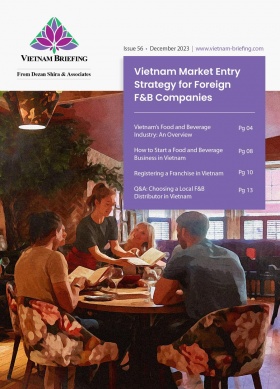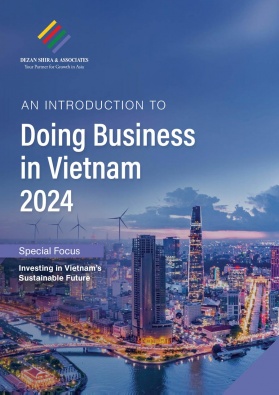Settling Business Disputes: Commercial Arbitration in Vietnam
Business partnerships can sometimes encounter disputes. To resolve such conflicts, commercial arbitration can be utilized as an effective solution. We discuss commercial arbitration procedures in Vietnam.
Commercial arbitration is a mechanism for resolving disputes between businesses. The process typically occurs at an arbitration center under the direction of an independent arbitrator. During arbitration proceedings, both parties present their respective cases, and the arbitrator endeavors to facilitate a mutually agreeable resolution.
In Vietnam, commercial arbitration is governed by the Law on Commercial Arbitration 2010 (Law 54/2010/QH12). The law stipulates that to engage in commercial arbitration, parties must first establish an arbitration agreement. This agreement can be formed either before or after the dispute has arisen. The Law on Commercial Arbitration 2010 follows the UNCITRAL (United Nations Commission on International Trade Law) model law on commercial arbitration as an international standard for procedural rules.
Commercial arbitration agreements
An arbitration agreement can take the form of an arbitration clause in a contract or a separate agreement entirely, but it must be in writing and agreed to by both parties.
Invalidating an arbitration agreement
The Law on Commercial Arbitration 2010 identifies circumstances under which commercial arbitration agreements will be considered invalid. These include the following circumstances:
- The dispute is not under the jurisdiction of the arbitrator.
- The person making the arbitration agreement lacks the authority to make the agreement.
- The form of the arbitration agreement is inconsistent with the law.
- One of the parties is deceived, threatened, or coerced in the process of establishing the agreement and requests for it to be declared invalid.
- The arbitration agreement violates the law.
Dispute settlement by commercial arbitration
Where are commercial arbitration proceedings held?
The parties involved in commercial arbitration are at liberty to mutually agree upon a venue, either within or outside the territory of Vietnam. If the parties fail to reach an agreement on the venue, the arbitration council will make the final decision.
Are arbitration proceedings accessible to the public?
The resolution of disputes through arbitration is not typically a public process, unless agreed upon otherwise by the parties involved.
Can foreign laws be applied to commercial arbitration in Vietnam?
In the context of commercial arbitration disputes in Vietnam, the parties involved hold the authority to choose the law they wish to apply to the matter at hand.
For instance, a dispute involving a Vietnamese enterprise and a US enterprise can be settled under either Vietnamese or US law, subject to mutual agreement. If no consensus is reached, the arbitral tribunal will make the determination.
In circumstances where the chosen law lacks explicit provisions regarding the dispute, the arbitration council may apply international law, provided it aligns with the fundamental principles of Vietnamese law.
If the parties have agreed to settle a dispute through commercial arbitration, can they still file a lawsuit in court?
In the event that parties have agreed to resolve a dispute via commercial arbitration, they may still have the option to file a lawsuit in court under certain circumstances, as outlined in Resolution 01/2014/NQ-HDTP. These conditions include:
- A court has nullified the arbitral award;
- Dispute settlement through arbitration is suspended;
- The agreed-upon arbitration location has ceased operations, and parties cannot reach a consensus on an alternative venue;
- The arbitrator is unable to participate in the proceedings, or the court cannot find an arbitrator agreed upon by the parties;
- The arbitrator or the arbitration center refuses to participate; or
- Parties initially agreeing to arbitration decide not to resolve the dispute through this method after a dispute has arisen.
How long is the statute of limitations for initiating a lawsuit to settle a commercial arbitration dispute?
Unless specified otherwise by law, the statute of limitations for initiating a lawsuit to settle a commercial arbitration dispute is two years from the time the infringement took place.
Commercial arbitration awards
What is an arbitral award?
An arbitral award is the decision rendered by the arbitration council.
The guiding principles for an arbitral award are:
- The arbitral tribunal shall make the award based on a majority vote.
- If a majority is not achieved, the decision shall be decided by the chairperson.
How are commercial arbitration awards enforced?
The parties are encouraged to voluntarily comply with the arbitral award. However, in the event that the award fails to comply within the time limit imposed, a written request can be made to the authorities to enforce compliance.
In what cases can an arbitration award be annulled?
An arbitral award can be annulled upon request of a party under the following grounds:
- If there is no arbitration agreement or the agreement is deemed invalid;
- If the arbitral tribunal’s composition and procedures are inconsistent with the parties’ agreement or contrary to the provisions of the law;
- If the arbitral award contains content that exceeds, or the dispute is not within, the tribunal’s jurisdiction;
- If the evidence provided by the parties is falsified, or if the arbitrator receives material benefits from a party that affects the fairness and objectivity of the award; or
- If the arbitral award contravenes Vietnamese law.
When a party files a request for the annulment of an arbitral award, the burden of proof is placed on the requesting party. Additionally, the court is responsible for actively verifying and collecting evidence in the case.
Commercial arbitration fees
Is there a fee for commercial arbitration?
Yes, there are commercial arbitration fees. These are composed of the arbitrator’s remuneration, travel expenses, and other relevant costs, as well as fees for expert consultations. Moreover, administrative charges, fees for appointing ad hoc arbitrators, and fees for utilizing other services are also included.
In principle, the losing party in a commercial arbitration proceeding is responsible for paying the arbitration fee unless otherwise agreed upon by the parties or stated in the arbitration rules.
Who sets arbitration fees?
The arbitration fee may vary depending on the chosen center. However, if the dispute is resolved through ad hoc arbitration, the arbitration council will determine the applicable fee.
Investor-state disputes (ISDs) involving Vietnam
| Year | Case Name | Outcome | Investor State |
| 2022 | ITACO and Dangelas v. Viet Nam | Pending | USA |
| 2022 | PowerChina and China Railway v. Viet Nam | Pending | China |
| 2019 | Dangelas and others v. Viet Nam | Pending | USA |
| 2018 | Baig v. Viet Nam | Pending | KOR |
| 2017 | ConocoPhillips and Perenco v. Viet Nam | Pending | UK |
| 2014 | Cockrell v. Viet Nam | Discontinued | USA |
| 2014 | Trinh and Bin Chau v. Viet Nam (II) | In favor of investor | Netherlands |
| 2013 | RecofiI v. Viet Nam | In favor of state | France |
| 2011 | Dialasie v. Viet Nam | In favor of state | France |
| 2010 | McKenzie v. Viet Nam | In favor of state | USA |
| 2004 | Trinh and Binh Chau v. Viet Nam (I) | Settled | Netherlands |
A summary of cases from 2004 to 2018 can be found here: Permanent Court of Arbitration Opens New Office in Hanoi
Some ISDs involving Vietnam 2019-2022
Vietnam has been involved in several investor-state disputes with various outcomes ranging from in favor of the investor to in favor of the state, and some cases that have been discontinued or settled.
The proceedings in these disputes are conducted under relevant international investment agreements depending on the parties involved or as per arbitration rules laid down by the United Nations Commission on International Trade Law (UNCITRAL).
Below we spotlight three such ISDs in brief.
ITACO and Dangelas v. Viet Nam
The ITACO and Dangelas v. Vietnam dispute involves claims arising from the conduct of the government in relation to bankruptcy proceedings against ITACO. Specifically, it is over an alleged debt owed to a third party by an ITACO subcontractor involved in an industrial park construction project. The case falls under the US-Vietnam Trade Relations Agreement. The case is being conducted under the UNCITRAL arbitration rules.
PowerChina and China Railway v. Viet Nam
This dispute is over a construction project. The investors, PowerChina HuaDong Engineering Corporation and China Railway 18th Bureau Group Company Ltd, both from China, have claims against Vietnam. The ASEAN-China Investment Agreement is the international framework being used to settle the dispute.
Dangelas and Others v. Vietnam
The case of Dangelas and Others v. Vietnam involves a dispute between Maya Dangelas, U.S. Global Institute Inc. and Angels Company Inc., and Vietnam. The case concerns investments made in the Kien Luong Thermal Complex Power Project.
The US-Vietnam Trade Relations Agreement is the international investment agreement being used to settle this case. The arbitration process is being carried out under the UNCITRAL arbitration rules.
About Us
Vietnam Briefing is published by Asia Briefing, a subsidiary of Dezan Shira & Associates. We produce material for foreign investors throughout Asia, including ASEAN, China, and India. For editorial matters, contact us here and for a complimentary subscription to our products, please click here.
Dezan Shira & Associates provide business intelligence, due diligence, legal, tax and advisory services throughout the Vietnam and the Asian region. We maintain offices in Hanoi and Ho Chi Minh City, as well as throughout China, South-East Asia, Dubai, and India. For assistance with investments into Vietnam, please contact us at vietnam@dezshira.com or visit us at www.dezshira.com.
- Previous Article How to Register a Trademark in Vietnam
- Next Article Vietnam’s 2024 Land Law: Significant Amendments and Key Changes








